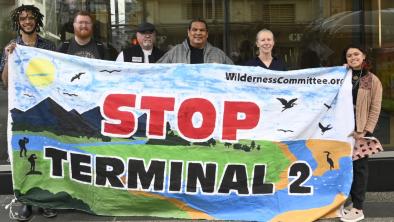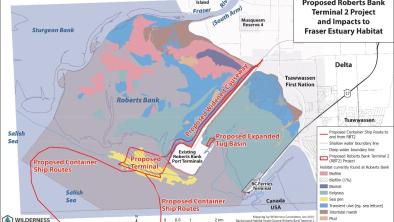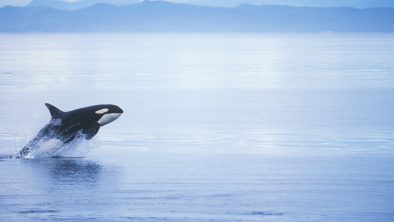B.C.'s killer whales, at-risk species score victory in landmark court case
The Vancouver Province

Ecojustice has won a landmark Federal Court case that will force the feds to take tougher steps to protect B.C.’s resident killer whales.
A conservation coalition made up of nine groups, Ecojustice argued in court that the federal Fisheries and Oceans (DFO) has failed to adequately protect killer whales or the quality of the water in which they live.
“This is a major victory, not just for our resident orcas but also for more than 90 other marine species listed under the federal Species at Risk Act,” said jubilant Ecojustice lawyer Margot Venton.
Venton says the decision handed down Tuesday will mean that all of Canada’s endangered marine species must be protected and laws enforced.
Venton argued in court that DFO must act to protect critical habitat for killer whales, by ensuring an abundance of salmon and restricting noise pollution that hampers killer whales’ ability to communicate.
“The ocean is a really dark place, and killer whales hunt and communicate by echolocation, using a clicking noise that helps them to hunt and find prey,” said Venton.
“The noise in the world’s oceans increases in volume each passing decade, adversely affecting killer whales, so we asserted noise pollution had to be addressed and the Federal Court agreed with us.”
Venton said DFO could enforce existing laws more stringently as well as draft new, tougher laws.
“The abundance of salmon, chemical pollution and physical and acoustic disturbance have all been identified as key threats to the critical habitat of resident killer whales,” said Misty MacDuffee of Raincoast Conservation.
Greenpeace’s Stephanie Goodwin said it is unknown “what steps DFO will take to protect killer whale habitat, but immediate action is necessary.”
Seismic activity, oil and gas exploration as well as oil supertankers are serious causes of noise pollution in B.C. waters, Venton noted, as are pleasure boats, ferries, freighters and aggressive whale-watchers.
B.C. has two distinct populations of resident killer whales that live in B.C, waters year-round. The southern resident killer whales have only 85 members remaining and are classes as endangered. There are about 220 northern residents classifed as “threatened.”
Both species are listed under Canada’s Species at Risk Act.
In 2009 Ottawa issued a “Protection Order for Resident Killer Whales” that Ecojustice argued ignored water quality, noise pollution and food supply.
In 2008, DFO issued a “protection statement” that used voluntary and non-binding guidelines, in a bid to protect critcal habitat.
The lawsuit challenged the effectiveness and legality of both DFO bids.
Venton said she has not received a response yet today from DFO legal counsel.
Ecojustice, formerly the Sierra Legal Defense Fund, is made up of leading conservation groups, including the David Suzuki Foundation, Dogwood Initiative, Greenpeace, Georgia Strait Alliance, Raincoast Conservation, the Sierra Club of B.C. and the Wilderness Committee.


